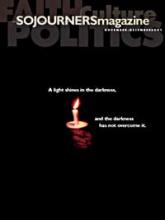Christopher Hitchens, in this illuminating assessment of Henry Kissinger's war crimes, reports on a filmed 1998 interview with Michael Korda, senior editor of Simon and Schuster. That morning The New York Times had reported on a Spanish court's indictment of former Chilean dictator Augusto Pinochet and the announcement that the Clinton administration would, however reluctantly, release secret documents on the killings and torture under Pinochet. The article added that some U.S. officials were worried about the implications for American leaders who might someday also be accused of war crimes by foreign countries.
During the interview, Korda was interrupted by a message that Kissinger had called. With the cameras still running, Korda immediately returned the call, jokingly saying the number he was dialing was 1-800-BOMB-CAMBODIA. Korda's side of the conversation made it clear that, as Hitchens put it, "sitting in his [Kissinger's] office at Kissinger Associates, with its tentacles of business and consultancy stretching from Belgrade to Beijing, and cushioned by innumerable other directorships and boards, [Kissinger] still shudders when he hears of the arrest of a dictator."
And well he should. With the spring 2001 arrest and trial of Serbian dictator Slobodan Milosevic and the opening of war crimes proceedings against Israeli Prime Minister Ariel Sharon by a Belgian court in July 2001, it is not out of the realm of possibility that Henry Kissinger could be indicted at some point on the grounds of crimes against humanity by any number of countries. At least that is the case that Hitchens tries to make. The prospect could be made more likely by the forced release in August of Kissinger's so-called Dead Key Scrolls-transcripts of Kissinger's phone conversations; the recordings were made when a secretary held down a "dead key" on an extension so as not to be heard.
Read the Full Article
